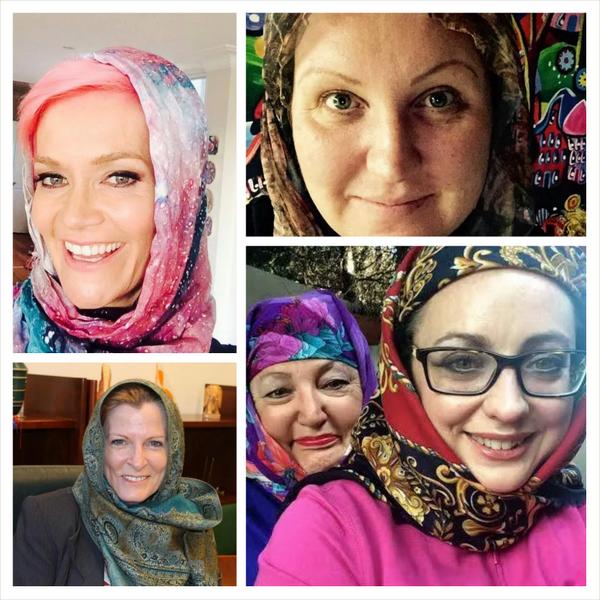
Her face was not a gentle one. It was marked with remnants of resilience borne through struggle, a defiance forged from necessity. She was travelling to the NRL (National Rugby League) grand final alone.
I wondered.
Her right hand looked deliberate, holding the window sill while her other hand grasped the rubber clad iPhone with authority. The woman's short nailed thumb flicked through Facebook and Words-With-Friends with determination, the seepage of an attitude she probably approached everything in life pervading even her interaction with social media.
My eyelids drooped, a headache throbbing. Dehydration; I should have known better. My mouth was dry as I contemplated dry swallowing Panadol to banish the thought-deadening pound. My mouth twitched. Sort yourself out girl, my inner voice chided.
What accent is your inner voice? Today, mine was British. Perhaps I internalise the effects of post colonialism more than I thought...
***
My lip curled in slight annoyance when the newcomers walked into my - the - carriage. It was the quiet carriage, but not for long. The older man and younger counterpart in a Jack Daniel’s cap started talking loudly and with a familiarity that belied a close relationship. Father and son, perhaps.
On any other day, I’d jump at the opportunity to talk to people, new folk, humans obviously going to enjoy themselves and open to worlds of possibility.
But as my eyelids grew heavy and my head tightened, my headphone cans acted as a physical barrier disallowing any possible interaction and it was all just a bit too hard today...
***
The younger man’s eyes danced as I looked up from my laptop screen, assessing how irritating their chatter was. His seat faced mine and our eyes locked briefly as I glared in his direction. I looked pointedly at the quiet carriage sign but the connection was lost, the communication lines in different languages.
The two men in the seat across the walkway from mine me stood up to go relieve themselves. As they walked past, the rabbitoh-jersey clad woman turned to look at me, red lips bright on her tanned complexion. Our eyes locked, and after a split second I smiled. The universal sign…
She smiled back warmly, unexpectedly transforming her face.
I wondered how my face transformed when I smiled.
***
The man whose eyes danced had an interesting face; crinkles around his eyes and an expressive mouth. Today, that was a gift, the easy smile belying a life which on surface, had been good to him. I wondered if his toothy grin and open face was always that way, or when faced with people like me those lips became tight, the face mean. I’d seen it happen before, a frightening and trust shattering change.
I wondered what made people whose lives were (on surface) so blessed, so very closed minded. Perhaps it was an underlying recognition that their life was fortunate and a fear that if they thought about it too hard they might be obliged to share.
I guess noone ever told them that sharing does not necessarily lessen one’s wealth in the way that one might think.
***
The woman behind me wailed. “I need to go to the toilet!” she cried, her voice high and childlike.
Her hair was white flecked with grey, her girth demanding.
An older man sat across from her. A husband, brother, carer? Either way, a man who was invested in this lady’s wellbeing.
“I need to go and I can’t hold it in!”
The man looked at his phone.
The jersey clad men sitting next to me turned around.
“Hey mate, there is a toilet over there”, he said, motioning at the door. “I can help you man if you need it…”
“She can’t fit”, the elderly gentleman replied with resignation. He stared down at his brown slacks.
“Oh.”
“I’m sorry mate.”
The young man turned around and his smaller mo-hawked friend averted his eyes.
The woman continued to wail and we all sat in the carriage, not acknowledging the difficulty this man was facing.
Politeness or a lack of empathy?
I turned around.
“Excuse me— sir, Excuse me”, I asked, attempting to make a contribution, not matter how ultimately futile. Maybe I needed to feel like I had done something, done the right thing.
“Excuse me sir— “
No acknowledgement. Mo-hawk turned to look at me.
I turned back around and started to type.
***
The lady started to sob behind me, her sobs turning into wails.
We all averted our eyes.
***
It is fascinating how anything slightly different can make us feel so uncomfortable. Whether or not this lady was suffering from a mental illness I can not honestly say, but it is a possibility. It only took a few loud lines to make the carriage awkward and unable to deal with the breaking of an unwritten social contract on what is civilised.
What was fascinating is the conversation that took place between the man and the woman as the train journey continued.
***
“You don’t understand how I feel”, the lady commented.
“Yes I do. The whole train does. We all know how it feels to need to want to go to the toilet”.
She whimpered.
“Yeh but you don’t know what it’s like not to be able to fit."
Brown slacks fell quite for a moment.
“Well that’s not my fault is it? It’s yours. It wasn’t my idea to bring all the chocolate or eat so much at breakfast. It’s a choice you made…"
The temperature in the carriage changed. No longer was the situation clear cut, an obvious hero or victim.
Cognitive dissonance abound.
“Mate. I’ll help you carry the bags out."
Brown-slacks looks constantly grateful. Its an expression of time and place and legitimacy we’ve done our bit.
That is my transformation exciting. When help is freely given without string attached


















